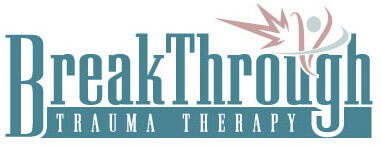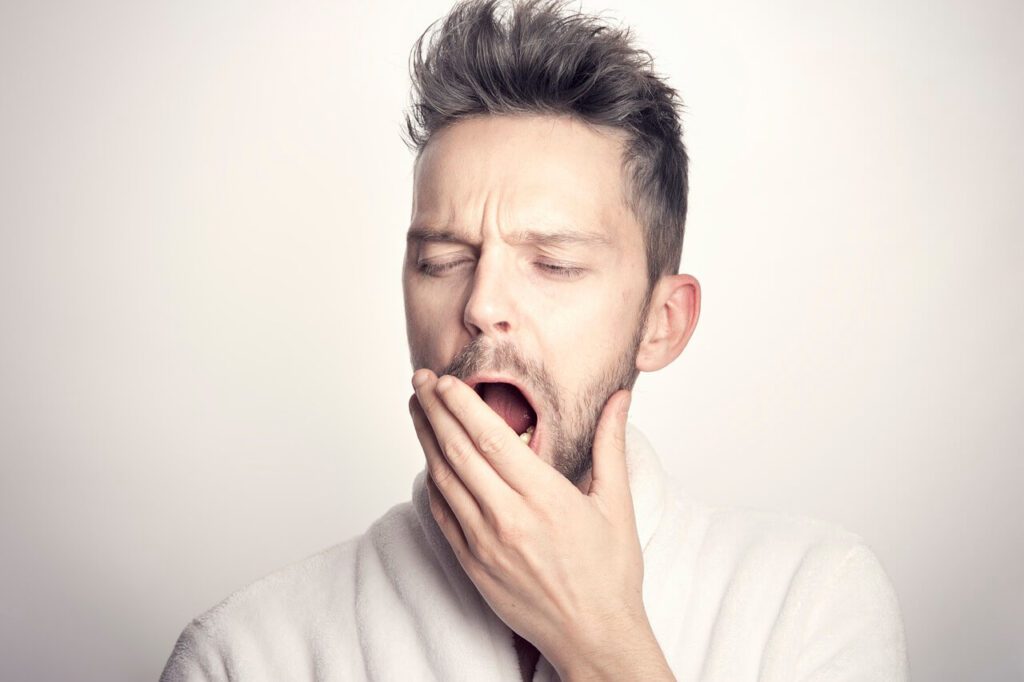How Therapy Gives You The Ability To Sleep Peacefully:
Imagine this: You start your day at 6:00, grab your coffee,  and head to work. All day at your computer you yawn and struggle to keep your eyelids open. You feel quite more irritable than usual with your coworkers today, as you haven’t slept well in weeks.
and head to work. All day at your computer you yawn and struggle to keep your eyelids open. You feel quite more irritable than usual with your coworkers today, as you haven’t slept well in weeks.
After work, you head to the gym, and then back home to start your nightly routine. You feel confident tonight is the night – after all, you were yawning all day! As you settle into bed ready to doze off, you begin tossing and turning, and your eyes pop open as you feel the dread of insomnia creeping in.
Sleeping medications are known for unfortunate side effects, and ruthless clinging on the next day. The grogginess felt for hours the following day can make functioning at work or school even more difficult than if you have never slept at all!
So, what else is there? Let’s talk about ways to manage your insomnia at home through proper sleep hygiene, and how therapy can take it even further.
What Is Insomnia?
If you’re one of the 70 million Americans that suffer from insomnia, you aren’t alone. Insomnia is one of the most common sleep disorders found in both children and adults.
Insomnia is characterized by persistent trouble falling asleep (sleep onset) and staying asleep (sleep maintenance) throughout the night.
The Diagnostic and Statistical Manual of Mental Disorders, Fifth Edition (DSM-5), defines insomnia as dissatisfaction with sleep quality or quantity, associated with one or more of the following symptoms:
- Difficulty falling asleep
- Difficulty staying asleep
- Frequent awakenings
- Problems returning to sleep after awakening
However, not all insomnia is the same. Some people experience short-term insomnia, only dealt with at certain times of the year. Others may deal with long-term insomnia, lasting for 3 months or more.
Insomnia is not an occasional restless night or a random streak of wakefulness. Insomnia is a real disorder that causes many people distress and debilitating physical and emotional symptoms.
What Causes Insomnia?
Glad you asked.
Here are the most common reasons someone may experience insomnia:
- Stress
- Mental Illnesses
- Poor Sleeping Patterns
- Irregular Sleep Schedule
- Sickness or Pain
- Medications
- Neurological Problems
- Sleep Disorders
- Lifestyle
As you can see, the causes of insomnia can be divided into two categories: environmental, and physical. While some people may genuinely struggle with a sleep disorder, in other cases, education on proper sleep hygiene may be the key to a sound slumber.
Long-Term Effects Of Insomnia:
Insomnia can have devastating effects that stretch far beyond having a sleepless night. Not only is “next-day fatigue” incredibly exhausting to manage, memory loss and a weakened immune system can occur.
Other long-term effects of insomnia include:
- Hypertension
- Heart attacks
- Stroke
- Difficulty concentrating
- Depression
- Anxiety
- Obesity
- Diabetes
- Lower brain function
- Decreased fertility rates
- Psychiatric conditions
Unmanaged insomnia can greatly reduce your quality of life. Relationships between family and friends can become strained, as your ability to enjoy them diminishes. This is why getting your insomnia under control is vital earlier than later. Some long-term effects aren’t able to be reversed.
Taking Care Of Insomnia At Home:
Managing your insomnia through proper sleep hygiene habits can be life-changing. Sleep hygiene is defined as healthy habits and environmental factors that can be altered to promote a good night’s sleep. Unhealthy sleeping habits are established in our early teens and often continue on well into adulthood. Sleep hygiene takes a conscious look at what areas need fixing in order to sleep well.
Set Your Internal Clock:
 Our bodies run on a 24-hour internal clock. Much of our bodily functions are synchronized to this schedule, so the secretion of hormones such as melatonin (essential for falling asleep) will begin to be produced when the body feels it necessary. Practicing good sleep hygiene means resetting your internal clock to wind down, and wake up, at healthy times.
Our bodies run on a 24-hour internal clock. Much of our bodily functions are synchronized to this schedule, so the secretion of hormones such as melatonin (essential for falling asleep) will begin to be produced when the body feels it necessary. Practicing good sleep hygiene means resetting your internal clock to wind down, and wake up, at healthy times.
Ways to do this:
- Get up at the same time every day. Yes, even on weekends. This teaches your body when to rise, and when to begin getting tired at night.
- Go to bed when you feel tired
- In contrast, don’t go to bed if you don’t feel tired. When you do so, bad habits of laying awake are strengthened.
- Expose yourself to early sunlight first thing in the morning. This helps your body set its internal clock.
Create A Healthy Sleeping Environment:
If your bedroom feels cozy and prepped for a good night’s rest, you’re more likely to actually achieve it. Studies have shown time and time again that people sleep deeper, and fall asleep easier in rooms that are optimized for noise, light, and temperature levels ideal for sleeping.
Ways to do this:
- Turn down your heat. The ideal temperature for sleeping is around 65℉.
- Make sure the room is dark. You can use an eye mask or blackout curtains.
- Block out the noise. Earbuds or a white noise machine both work well.
- Only use your bed for sleeping. If you use your bed for other activities such as homework, your brain will associate these together.
- Invest in supportive bedding.
Allow Yourself To Relax:
Since insomnia is thought of as a disorder of hyperarousal, establishing a relaxing nightly routine can make a world of a difference in preparing your body, and mind for sleep. Not only can relaxing techniques help you fall asleep, but they can also help you sleep soundly.
Ways to do this:
- Bedtime meditation
- Journaling
- Breathwork
- Turning off screens at least 30 minutes before bed
- Reading
- Taking a warm bath
Lifestyle Adjustments:
As difficult as it may be to come to terms with, some of the choices you’re making during the day are contributing to your lack of sleep at night. If you want to wake up everyday and feel refreshed and well-rested, you may need to make a few lifestyle adjustments.
Ways to do this:
- Cut out alcohol and other substances before bed. Even smoking cigarettes late at night can greatly mess with your sleep hormones.
- Aim to move your body every day. Exercise has many benefits, and helping insomnia is one of them.
- Avoid naps during the day. If you must, limit them to 30 minutes or less.
- Don’t drink caffeine after 3 pm
- Turn your alarm clock away from you. It’s easy to stress about sleep when you’re watching the minutes tick by.
Cognitive Behavioral Therapy For Insomnia:
In some cases, you can do all the work, relax your body as much as physically possible, and cut out coffee altogether, and you still find yourself up at night. In these instances, getting support from a therapist is your next step.
How can therapy help you sleep? Cognitive behavioral therapy for insomnia (CBT-I) is an evidence-based technique used by therapists worldwide to help patients manage the devastating effects of no sleep.
What Is Cognitive Behavioral Therapy For Insomnia?
CBT-I is a subdivision under the general ‘cognitive behavioral therapy’ umbrella.
Cognitive behavioral therapy itself works with clients to address negative patterns of thinking, and how these thoughts are impacting their daily lives. Through mainly methods of talk therapy, patients are empowered to redirect these negative thoughts into more healthy, effective ones.
CBT-I then focuses on the way a client thinks, what a client does, and the way they sleep at night. A professional will address any feelings, thoughts, or behaviors that are causing a patient’s insomnia.
Not only are unhealthy thoughts and behaviors called out, but they are also then tested to allow a client to determine if they’re accurate. If not, they are reframed into thoughts more beneficial for sleep.
Approaches Used In CBT-I:
Now that we know the general idea of what cognitive behavioral therapy for insomnia is, let’s talk about how this is done. CBT-I uses various techniques based on a client’s needs. Some therapists may choose to only use one method, while others may combine a few in order to best serve the patient.
Cognitive Restructuring:
The main goal of cognitive restructuring is taking old ideas about sleep, (i.e: I’m such a bad sleeper. I’ll never get a full night of rest!) and addressing them.
For many people with insomnia, anxious thoughts about how the night will play out can run rampant as bedtime draws near. This can exacerbate their inability to fall asleep, making things even worse.
Unhelpful thoughts are identified, challenged, and changed in order to break the nightly cycle of worry.
Stimulus Control:
Stimulus control and sleep hygiene go hand in hand. Oftentimes, therapists will recommend environmental or lifestyle changes to their patient in order to further along treatment.
Stimuli such as eating in bed, watching tv in bed, or using a laptop while in bed, can all become strengthened as a signal for your brain to stay awake. With stimulus control, a patient is directed to only use his or her bed for sleeping during the duration of treatment. This can help reset your brain to only associate the bedroom with sleep.
Sleep Restriction:
Many people that suffer from insomnia allow themselves to lay in bed without sleeping for hours, upon hours. This is actually counterproductive as our brains begin to associate the bed with being awake.
Sleep restriction puts a limit on the time spent in bed, instructing a patient to get out after a certain amount of time. The goal of sleep restriction is to create a drive to go to bed, by establishing a stricter sleep schedule.
Relaxation Training:
Just as we discussed in sleep hygiene, prepping your mind  and body for sleep through the use of relaxation methods is a powerful tool to help clients get ready for bed.
and body for sleep through the use of relaxation methods is a powerful tool to help clients get ready for bed.
Relaxation techniques can be used to calm the racing, anxious thoughts that occur when patients lay awake in bed unable to sleep. In addition, relaxation techniques such as meditation can stimulate the body’s natural relaxation response – kickstarting the body’s desire to sleep.
Methods such as breathwork, biofeedback, muscle relaxation, meditation, and even hypnosis can allow a client to feel calm and safe in their body, reduce stress, and enhance feelings of peace.
How Effective Is CBT-I For Insomnia?
Research conducted has shown that when various techniques are used in CBT-I, as high as 80% of patients who suffered from primary insomnia found relief. Benefits of CBT-I for these patients included less time to fall asleep, greater length of time staying asleep and reduced events of waking up during the night.
In addition, studies have shown that groups at risk for insomnia such as pregnant women, or patients with post-traumatic stress disorder have greatly benefited from the methods used during CBT-I.
It may not work right away for everyone, though. CBT-I has a learning curve when it comes to understanding and practicing the techniques taught in therapy. This is why many therapists assign ‘homework’ to their clients, as a way to help them incorporate these tools into their everyday life.
Don’t Let Insomnia Steal Another Night:
Let’s quickly talk about what we just learned. Insomnia may look different for everyone based on the duration, and symptoms. Some people may have difficulty falling asleep, while others may not be able to stay asleep throughout the night.
No matter what, sleep hygiene and cognitive behavioral therapy for insomnia can work together hand in hand to tackle these frustrating sleepless nights.
By adjusting your room to an ideal temperature, practicing meditation before bed, and cutting out screen time, you can begin to instill proper sleep habits that can start your journey before you even walk into a therapist’s office.
Don’t feel discouraged if your efforts aren’t helping. Some people need professional help, and that’s okay too. There are many trained professionals who are willing and able to guide you on the journey to beat insomnia. Using methods of thinking redirection, you’ll soon find sleep has never come easier.
Contact Us
